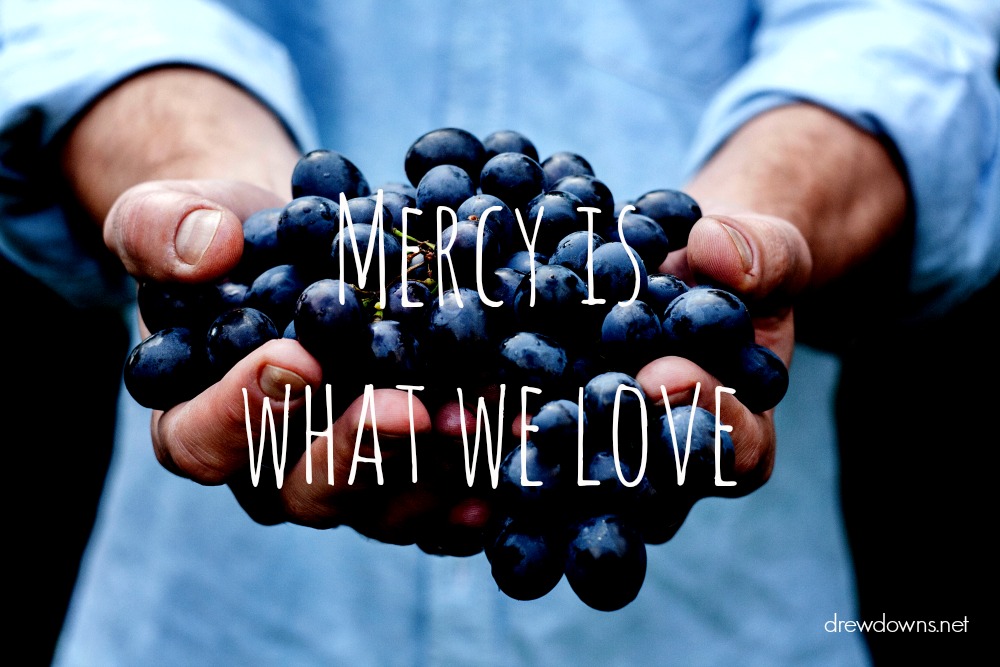It strikes me that our society is more interested in public shaming than actually changing the behavior of its people. We are more interested in taking pictures of people watering their lawns during a drought than we are in more effectively curbing the practice, or better, than transforming how Californians landscape.
Of course, I’m not shaming the shamers. The same could be said during any big trial or case when we chastise the accused. Or we see it most directly in attempts to “get tough on crime” which lead to more incarceration than rehabilitation. We all have heard the anecdotes of the people getting no fewer than 15 years in prison for stealing a candy bar.
If this is the primary cultural attitude: to prefer public shaming to just about anything else, then what role does the Christian play in this?
As Christians, we are called to prefer mercy.
Our goal isn’t punishment, shaming, vitriol, or hatred. And it isn’t overlooking injustice either. It is something else, something harder to do: mercy.
At baptisms and several feast days, we are given the opportunity to renew our baptismal covenant: the promises we made at our baptism, or promises made on our behalf. Many of us have made these vows dozens of times, if not hundreds. At every Easter and Pentecost and baptism. We affirm our beliefs and our practices and who we are, and then, we finish by saying
Presider: Will you strive for justice and peace among all people, and respect the dignity of every human being?
People: I will, with God’s help.
It is hard to respect the dignity of every human being when we are busy shaming some of them on Social Media.
Perhaps many of us do this because we feel otherwise powerless. We can’t bare to think that a reality TV star abused his siblings or an officer murdered an unarmed civilian or a public protest devolved into looting one night and that they might get away with it. This is the one thing we feel we can do to make a difference.
But it doesn’t in the way that we want. The only difference is that people called to do justice, love mercy, and walk humbly with GOD violate their promises. And the system itself remains unchanged.
Mercy is what we’re called to do. Or actually, it is what we are called to love.
Mercy toward people, not the system. Because there, justice is what we do. GOD’s radical, subverting justice of preference for the poor, the outcast, the resident alien. In doing justice and loving mercy, may we walk humbly there with our GOD.
You may also like:
A generic response to prejudice
Don’t have time for taking sides
Do
No More Racists
How Generosity Could Save the Church


Leave a Reply